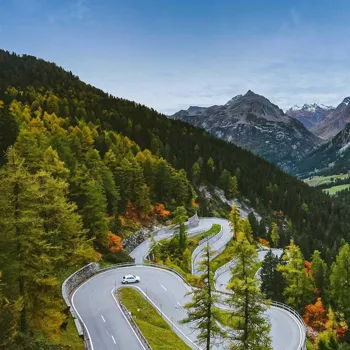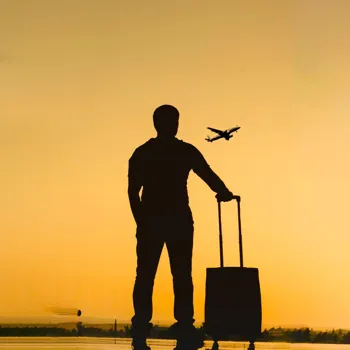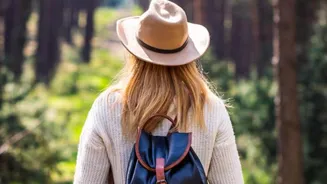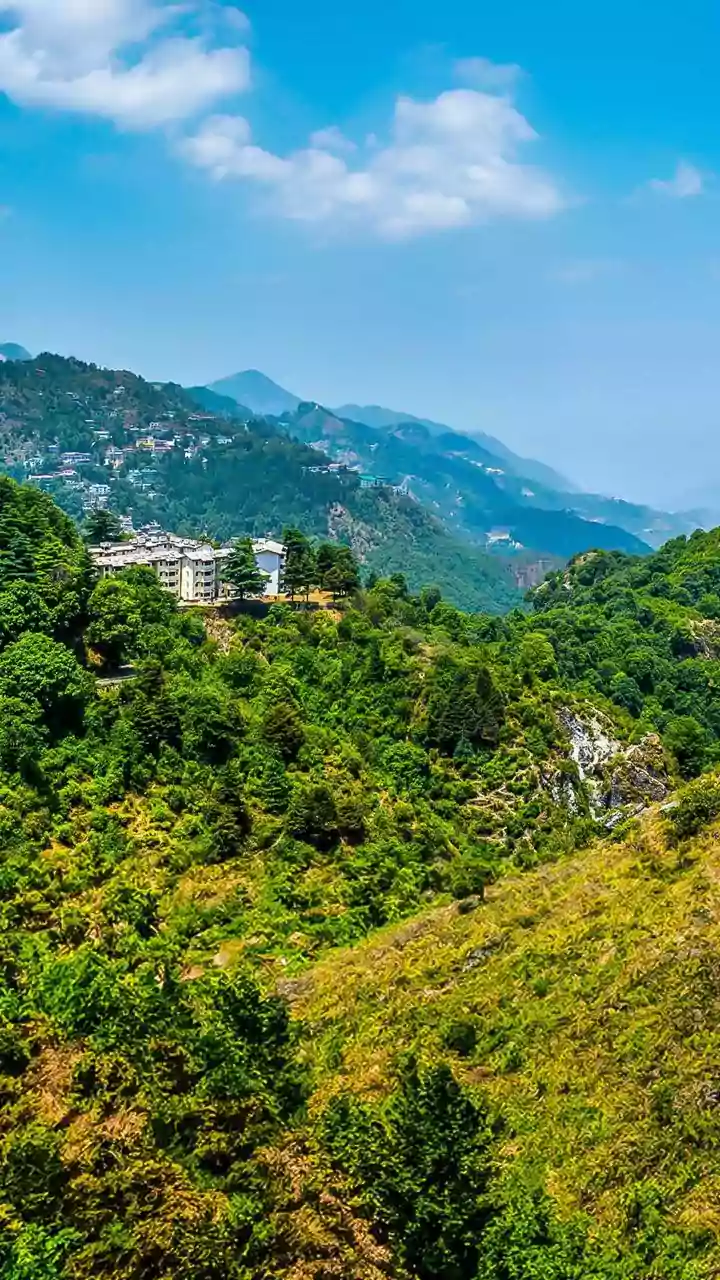Discover how to travel solo in India safely with these 10 essential tips. Your worry-free adventure awaits!
Going it alone on a trip across India can be an absolutely brilliant experience. The freedom to
explore at your own pace, discover hidden gems, and connect with yourself is truly unmatched. However, it's also crucial to prioritise your safety and well-being when traveling solo.
India, with its vibrant culture and diverse landscapes, presents unique challenges. But don't you worry! With a little bit of planning and a proactive approach, you can ensure a memorable and, most importantly, safe adventure.
This article gives you 10 essential tips tailored for solo travellers in India, so you can explore with peace of mind and create memories that will last a lifetime.
Here's how to travel safety without worries:
Research Your Destination Like a Detective:
Before you even pack your bags, spend some time thoroughly researching the places you plan to visit. Understand the local customs, traditions, and cultural sensitivities. Knowing what to expect will not only help you blend in better but also avoid unintentionally causing offense.

Check travel advisories for any potential risks or areas to avoid. Dive into online forums and travel blogs to get firsthand experiences from other solo travellers. Look for information on safe neighbourhoods, reliable transportation options, and any specific scams prevalent in the area.
Also, learn a few basic phrases in the local language. Even a simple "Namaste" or "Thank you" can go a long way in building rapport and showing respect, especially when you are a solo traveler.
This research isn't about scaring you, but empowering you with knowledge so you can navigate your travels with confidence. You should find out about the places you want to visit, which transport to use and where to stay. This helps a lot in traveling smartly.
Share Your Itinerary, Stay Connected with your circle:
This is super important, especially when you are on your own. Share your detailed travel itinerary with a trusted family member or dear friend. Include your flight details, accommodation addresses, planned activities, and transportation arrangements. Agree on regular check-in times.
Keep connected with your dear family via phone calls or online text services which are available easily to download. That way, they will know you are safe. In case of emergencies, get an International SIM card or be in constant touch via online communication.
If you deviate from your plan, inform them immediately. Consider using a location-sharing app so someone always knows your whereabouts. While you want to be independent, letting someone keep an eye on your journey can make a huge difference in your safety.
Share your number to all near and dear and stay connected. Let them be aware of your plans throughout the journey. Staying connected allows a lifeline in urgent situations.
Accommodation – Choose Wisely, be safe
Where you stay significantly impacts your safety and peace of mind. Opt for well-reputed hotels, guesthouses, or homestays in safe and central locations. Read online reviews carefully, paying attention to comments about safety and security.
Check if the accommodation has security features like CCTV cameras, secure locks, and a 24-hour front desk. Prioritize female-only dorms in hostels if you're looking for budget-friendly option. Avoid staying in isolated areas or accommodations that seem sketchy.
Once you arrive, ensure all doors and windows are properly locked. Be aware of your surroundings, especially when entering and leaving accommodation premises at night. Trust your gut feeling – if a place feels unsafe, don't hesitate to leave and find alternative arrangements.
Do not share your room number with strangers and be wary of visitors you didn't expect. Secure accommodation forms the base of a safe trip.
Dress Respectfully, Be sensitive to Culture:
India's culture is diverse, and clothing norms vary across different regions. While you don't need to completely transform your wardrobe, dressing modestly can help you avoid unwanted attention and show respect for local customs.
In more conservative areas, avoid wearing revealing clothing or anything too tight-fitting. Opt for loose-fitting, comfortable clothes that cover your shoulders and knees. Carrying a scarf can be useful for covering your head when entering religious sites.
Pay attention to how local women dress in the area you're visiting and take cues from them. Dressing respectfully isn't about sacrificing your style; it's about being mindful of the local culture and ensuring a safer, more comfortable experience.
Dressing according to region and culture reflects your maturity in traveling.
Transportation – Stick to Reputable Options:
Transportation is another critical aspect of safety in India. When possible, stick to reputable and well-established transportation services. Avoid taking unmetered taxis or auto-rickshaws, especially at night.
Instead, use ride-hailing apps like Ola or Uber, or pre-booked taxis from reliable companies. When travelling by train, opt for higher classes like AC First Class or AC Second Class. Which would be comfortable and provide peace of mind. Be cautious of crowded buses or trains.
Keep your belongings close to you and be aware of your surroundings. If you're renting a car or scooter, ensure you have a valid license and insurance, and familiarize yourself with local traffic laws. Don't travel alone on deserted routes or at night.
Sharing a ride with other travellers can be a good option for safety and cost-effectiveness. Safe transport is very important and requires checking facts before journey.
Protect Your Belongings, Be Alert:
Petty theft and scams can happen anywhere, so it's essential to be vigilant about your belongings. Carry a copy of your passport and other important documents separately from the originals. Keep your valuables, such as your phone, wallet, and camera, in a secure bag or money belt.
Avoid displaying expensive jewellery or gadgets. Be aware of your surroundings, especially in crowded areas like markets and tourist attractions. Be wary of strangers who approach you offering help or trying to strike up a conversation. Don't leave your belongings unattended, even for a moment.
If possible, use hotel safes to store valuable items. Using a travel insurance is always recommended, it covers you for lost or stolen items. Keep your belongings close and never leave them unattended. Protect yourself from theft by being alert always.
Trust Your Intuition, Don't hesitate for Help:
One of the most valuable tools you have as a solo traveller is your intuition. If a situation feels uncomfortable or unsafe, trust your gut feeling and remove yourself from the situation immediately. Don't hesitate to say no to offers or invitations that make you feel uneasy.
Be assertive and confident in your interactions with others. If you feel like you're being followed or harassed, seek help from a police officer, shopkeeper, or other authority figure. It is also crucial to remember emergency contact numbers. Keep them handy in your phone and written down as well.
Don't be afraid to ask for directions or assistance from locals, but be mindful of whom you approach. Most Indians are friendly and helpful, but it's always better to err on the side of caution. Always trust your instincts to keep you safe and sound.
Food and Drink Safety: Be Cautious
While indulging in local culinary delights is part of the travel experience, it's also essential to be careful about food and drink safety. Stick to eating at reputable restaurants and avoid street food vendors that seem unhygienic. Make sure your food is cooked thoroughly and served hot.
Drink bottled water from sealed bottles and avoid ice in your drinks. Be cautious of beverages offered by strangers, as they could be tampered with. If you have any dietary restrictions or allergies, communicate them clearly to the restaurant staff.
Avoid eating fruits or vegetables that haven't been properly washed or peeled. If you experience any stomach upset, seek medical attention immediately. Be extra careful eating and drinking anything so you don't fall sick during travel. Staying well allows for a fulfilling travel experience.
Learn Basic Self-Defense, be confident:
Taking a basic self-defense class before your trip can boost your confidence and provide you with valuable skills in case of an emergency. Learn a few simple self-defense techniques, such as how to break free from a grab or deliver a sharp strike.

Practicing these techniques can help you react quickly and effectively if you are ever in a threatening situation. Carry a personal safety alarm or whistle that you can use to attract attention if needed.
Be aware of your surroundings and avoid walking alone in dark or deserted areas, especially at night. Projecting an air of confidence can deter potential attackers. And if trouble comes your way, you should use your new learning.
Stay Aware of Local Laws and Customs:
Be aware of local laws and customs to avoid unknowingly breaking the law. Familiarise yourself with local regulations regarding alcohol consumption, photography, and public behaviour. Be respectful of religious sites and traditions.
Avoid engaging in any illegal activities, such as drug use or gambling. If you're unsure about something, ask a local or consult a reliable source of information. Staying informed about local laws and customs can help you avoid misunderstandings and ensure a smooth and trouble-free trip.
The importance of knowing and respecting local laws for safe travels.
By following these 10 essential tips, you can minimise risks, be prepared for the unexpected, and enjoy your solo adventure in India with complete peace of mind.
Travel smart, stay safe, and embrace the incredible experiences that await you!
AI Generated Content. Glance/InMobi shall have no liability for the content






















